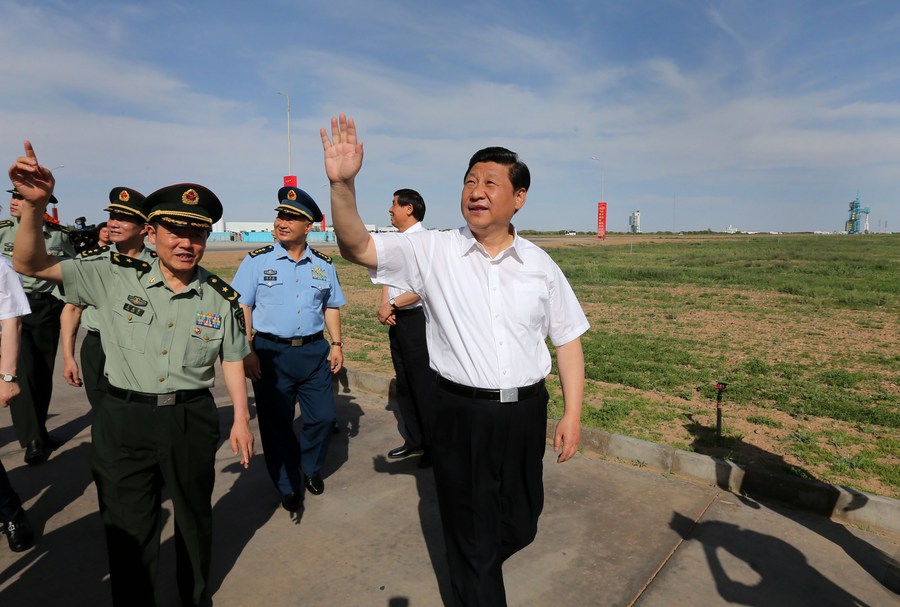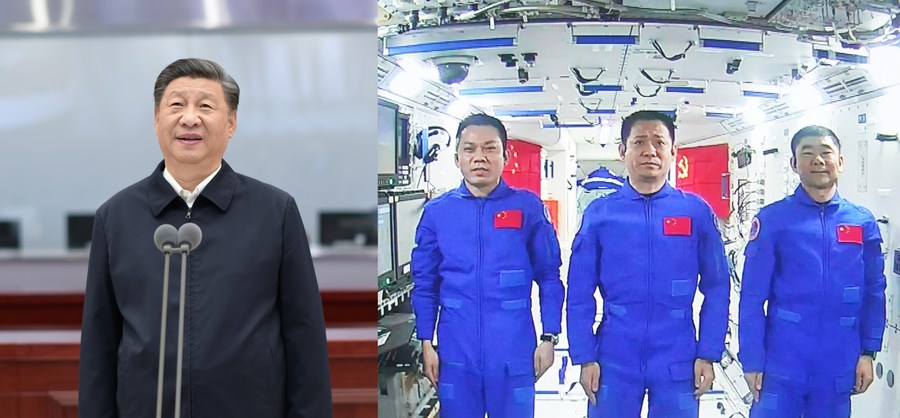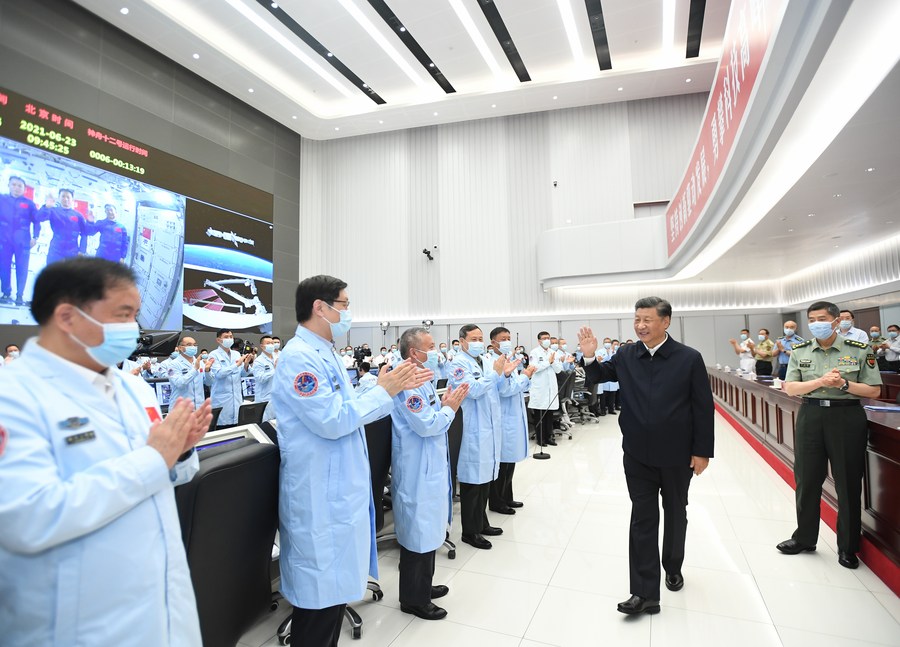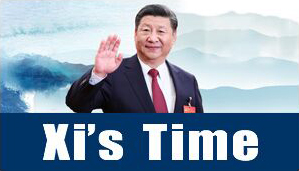
Chinese President Xi Jinping (R, front ), also general secretary of the Central Committee of the Communist Party of China (CPC) and chairman of the Central Military Commission (CMC), waves to journalists and staff members at the Jiuquan Satellite Launch Center in Jiuquan, northwest China's Gansu Province, June 11, 2013. (Xinhua/Pang Xinglei)
BEIJING, Dec. 27 (Xinhua) -- Eight years ago, during a live-stream, Wang Yaping was playing with her food. Millions of viewers tuned in to watch the Chinese taikonaut as she reached out to spin a floating "zongzi," a leaf-wrapped rice dumpling, in zero gravity whilst on board the Shenzhou-10 spacecraft. The idea to include this snack on the space mission's menu came directly from President Xi Jinping.
Zongzi is traditionally eaten during Duanwu Jie (Dragon Boat Festival), which falls on the fifth day of the fifth month on the Chinese lunar calendar. In 2013, the festival coincided with the Shenzhou-10 manned space mission. Before the launch, Xi said that the taikonauts should be able to celebrate the festival, too, and requested that zongzi be added to the spaceship pantry.

Combo photo shows Chinese President Xi Jinping, also general secretary of the Communist Party of China Central Committee and chairman of the Central Military Commission, holding a conversation at the Beijing Aerospace Control Center (L) with three astronauts Nie Haisheng, Liu Boming and Tang Hongbo stationed in the country's space station core module Tianhe (R), on June 23, 2021. (Xinhua/Xie Huanchi, Yue Yuewei)
Every time Xi has held video calls with the country's orbiting taikonauts, their well-being has been his priority. He discusses their health, work and living conditions, and is sure to tell them, "We all care about you very much."
On June 11, 2013, not long after entering office as the Chinese president, Xi visited Jiuquan Satellite Launch Center in northwest China, to see off the Shenzhou-10 mission taikonauts. Three years later, despite being overseas on official business, Xi sent congratulations after the successful launch of the Shenzhou-11 mission.
Xi may have his feet firmly on the ground, but he has his eyes on the stars. In a letter replying to veteran scientists in 2020, he recalled the day 50 years ago China launched its first man-made satellite Dongfanghong-1. He wrote: "I was thrilled when the news reached me in Liangjiahe," referring to the small, rural village in northwestern China, where he spent part of his formative years.

Chinese President Xi Jinping, also general secretary of the Communist Party of China Central Committee and chairman of the Central Military Commission, greets staff members after holding a conversation at the Beijing Aerospace Control Center with three astronauts Nie Haisheng, Liu Boming and Tang Hongbo stationed in the country's space station core module Tianhe, on June 23, 2021. (Xinhua/Yan Yan)
"The space dream is part of the dream to make China stronger," Xi said eight years ago during his first video call to orbiting taikonauts. "With the development of space programs, the Chinese people will take bigger strides to explore further into space."
In the years since this statement, China now has its own global navigation satellite network; its moon probe brought back lunar samples; it landed a rover on Mars, and its taikonauts are currently constructing a Chinese space station.
"You [taikonauts] represent all those who are striving to make China a strong aerospace nation," Xi has told orbiting taikonauts.
This respect and passion is shared by millions who, when they look to the skies every night, see that their dreams are in reach. ■




